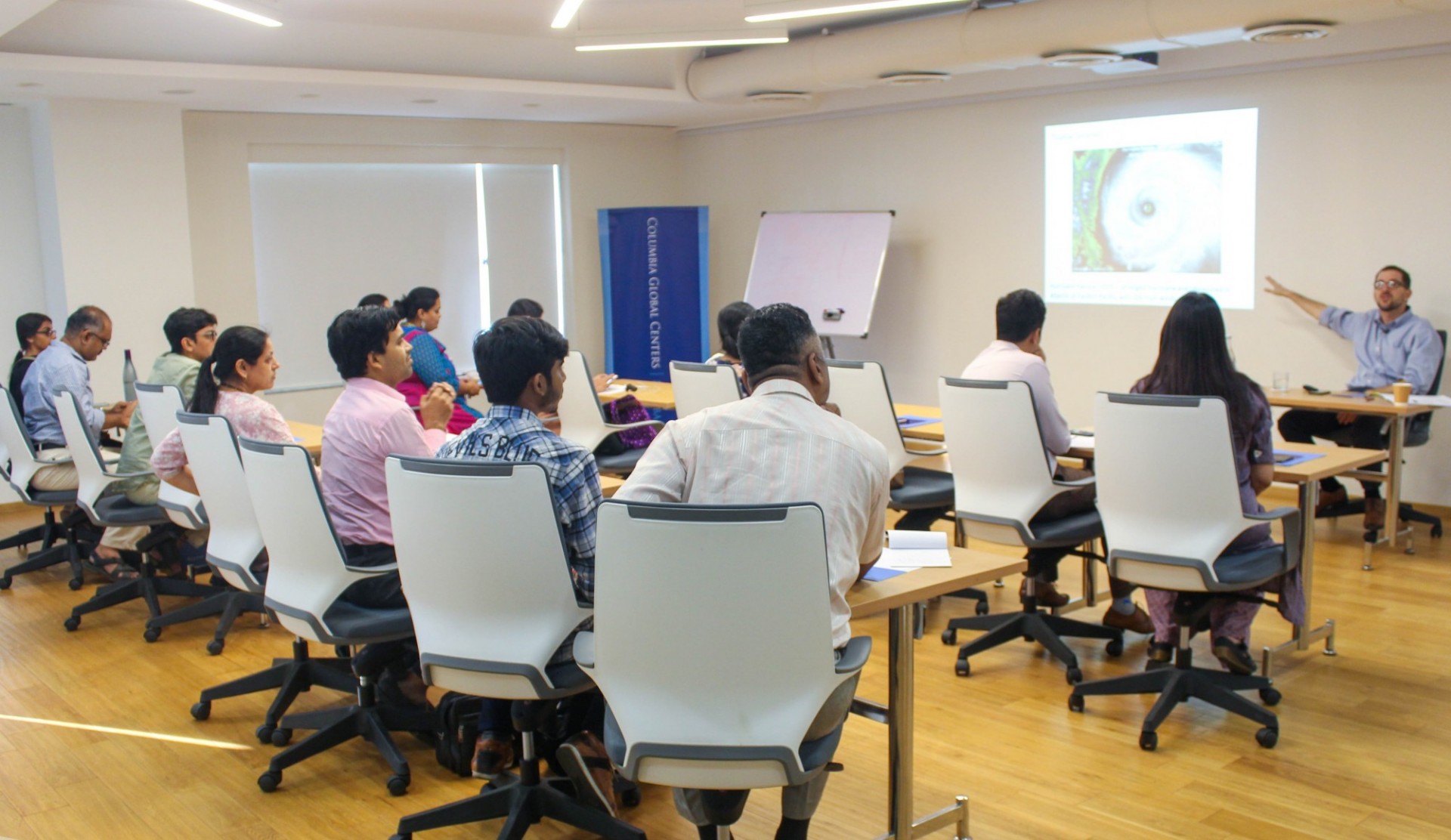Teaching Climate Change

Even as Climate Change poses severe risks to the city, systematic research and teaching about the subject lags behind in Mumbai’s colleges. To address this gap, Columbia Global Centers | Mumbai launched a seminar series that leverages the scientific expertise of Columbia’s faculty for building conceptual and methodological capacity among college teachers.
The inaugural session of the series, entitled Extreme Weather and Climate Change in New York and Mumbai, was led by Adam Sobel, Professor of Applied Physics and Applied Mathematics at Columbia on December 6, 2019. Professor Sobel’s presentation drew comparisons between Mumbai and New York city to showcase the risk to coastal megacities from storms and sea-level rise. He posited that global warming could lead to an increase in the number and intensity of cyclones, which can become especially dangerous with intensified wind speed, rainfall, and surge strength. Mumbai’s low, flat, and flood-prone topography makes it even more vulnerable. While the city has not typically been the locus of cyclones, the Arabian Sea has recently been registering heightened storm activity, Professor Sobel argued. He shared insights from his research on Mumbai that used two different cyclone hazard models, which were made to generate large numbers of cyclones using environmental data that were correlated with historical observations. Both models indicated that a severe cyclone landfall at or near Mumbai is possible, even if its probability is low in an annual scenario. This calls for innovative disaster management planning. “The likelihood of Sandy hitting New York was a once in a couple of hundred years event, but it occurred. Mumbai is where New York was, in fact even more vulnerable,” warned Professor Sobel.
During the interactive session following the presentation, participating teachers asked multiple questions related to measurement and monitoring. They were also given reading references and other guidelines to design integrated and interdisciplinary coursework on climate change. Representing science departments of Jai Hind College, Institute of Science, and Ruia College, participants also expressed the need for faculty training and engagement programs to fulfil their institutional mandate for enhancing research and curriculum development in such relevant areas.